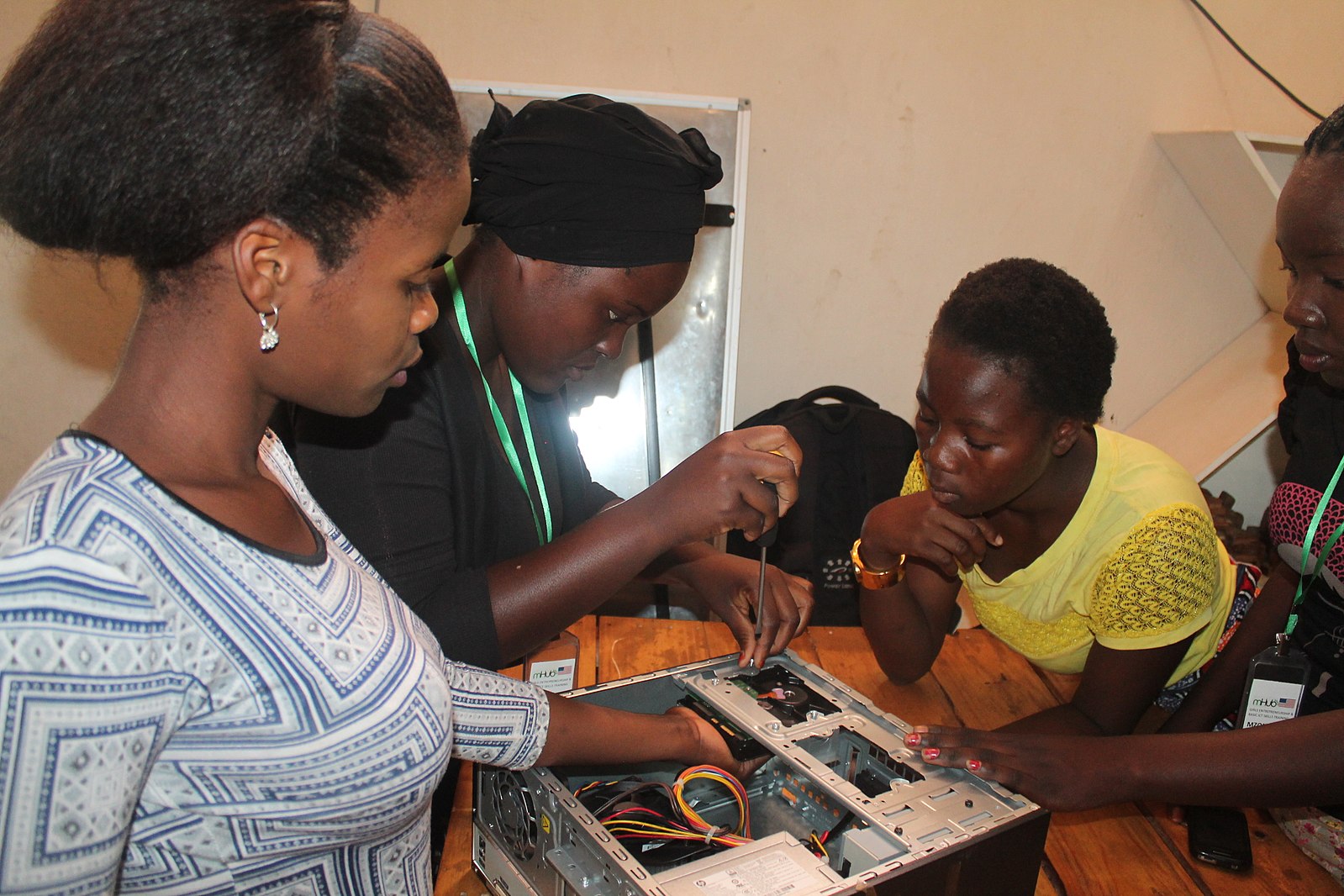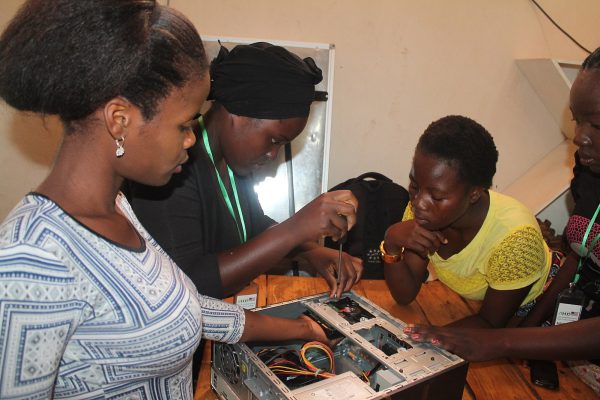Women make up almost half of Nigeria’s labour force. Yet they face significant challenges to thriving in their businesses and workplaces. Often, those obstacles are socio-cultural. But they may also be economic. Despite this reality, women in Nigeria’s labour force are helping to sustain and grow the Nigerian economy.
Read more about Women
Progress has been made in enabling the greater participation of women in the world of business, especially at the highest levels of the corporate setup. However, much remains to be done. Gender gaps still exist in many aspects of commercial and industrial endeavours. This article highlights some of those gaps as part of a review of facts about women who are involved (and should be participating) in this country’s economic activities.
Women in Nigeria’s Labour Force: Key Facts
Here are 10 facts about women in Nigeria’s labour force.
Women Make up Almost Half of Nigeria’s Labour Force
The World Bank (relying on data from official sources) says that women made up about 48.44% of Nigeria’s labour force in 2023. In other words, women aged 15 and above constitute nearly half of the country’s population who are involved in the production of goods and services.
A Smaller Portion of Women, Compared to Men, are Economically Active
The labour force participation rate measures the percentage of a given population aged 15 years and above who are economically active. The proportion of the Nigerian female population that is economically active is 52.2%. For men, it’s 65.9%. The female labour participation rate has been declining since at least 2010, a pattern that follows the global trend.
Four out of Every Five Women are in Vulnerable Employment
Workers in vulnerable employment are unlikely to have formal work arrangements, social protection, and safety nets that guard against economic turbulence. As a result, they are more likely to become poor. Most people in Nigeria’s labour force are in vulnerable employment—this is true for men and women alike. The figure for women is 84.9% and 84% for men. However, there’s been some improvement in the numbers for women since 1991.
Ogun State Has the Highest Number of Female Led Businesses
Ogun State has the highest number of female-led businesses in Nigeria, according to the FATE Foundation. The state accounts for 8.1% of businesses led by females in the country. It is followed by Lagos (contributing 7% to the national figure), Oyo (6%), Kaduna (5.7%), and Rivers (5.5%).
Fewer Women than Men Own a Business
Women own 40% of Micro, Small, and Medium Enterprises (MSMEs) in Nigeria, according to a 2023 report from the National Bureau of Statistics (NBS). For context, the global average is 38%. These businesses are more likely to be informal, smaller, and home-based.
Sign up for the Connect Nigeria daily newsletter
Higher Corporate Positions Have Fewer Women in Them
A PwC Nigeria report suggests that the ratio of males to females at the lower levels of corporate employment is fairly even. But further up the corporate leadership hierarchy, there are fewer women to be seen. This appears to indicate a gender disparity in career mobility.
Women Entrepreneurs are Less Reliant on Loans
The NBS report referred to earlier also notes that 45% of women-owned MSMEs used credit facilities. The percentage was 47% for men. But men tended to secure significantly more than women. They took out an average of ₦93,000, compared to ₦57,000 for women.
New Businesses Created by Women are Often in the Trade Sector
Many of the new businesses created by women in the past few years are in the trade sector. According to the FATE Foundation, 40% of female-owned new businesses are trade-related. Other sectors favoured by women are Advertising and Marketing (11%), Events and Entertainment (7.5%), and Agriculture (7.3%).
Female Enrollment in Vocational Training is Approaching 50%
The Partnership for Advancing Women in Economic Development (PAWED) indicates that female enrollment in adult and basic literacy hovered around 48% to 49% range between 2016 and 2019. These skill-building initiatives will be vital for tackling the hindrances to female employment in Nigeria.
Almost Half of Female Entrepreneurial Training is in Business Management
A survey by the FATE Foundation reveals that about 47.6% of female entrepreneurs who were trained between 2021 and 2022 said that their training was in business management. Other training areas popular among women include business expansion and people management.
Register to attend the CN Business Mixer
Final Words
The women in Nigeria’s labour force are, for the most part, quite resilient. They continue to brave the odds, and frequently achieve successes despite severe drawbacks. Hopefully, stakeholders in government and the private sector will intensify their efforts to enable greater female participation in the country’s economy.
Got a suggestion? Contact us: [email protected]


